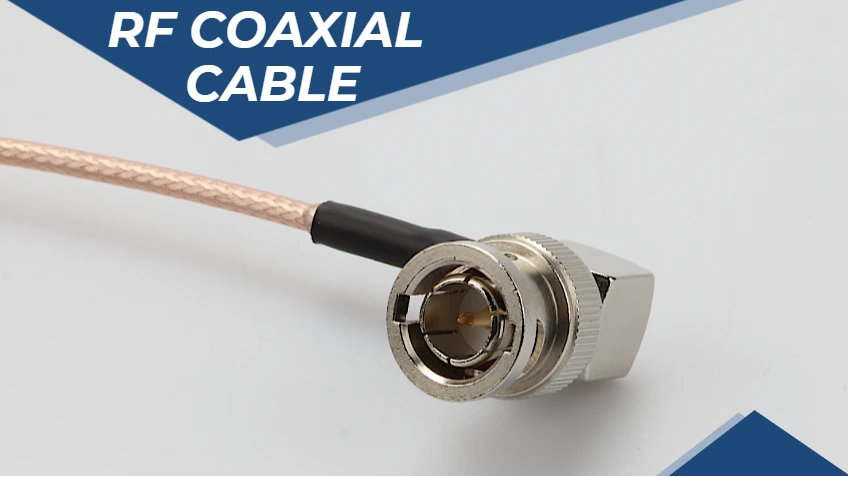Technology has undoubtedly revolutionized the way we approach security systems, making it easier than ever to protect our homes and businesses. One critical component of any security setup is camera cables, as they form the backbone of our surveillance systems. In recent years, BNC (Bayonet Neill-Concelman) camera cables have become increasingly popular due to their unique set of features and advantages. However, like any technology, there are both pros and cons associated with using BNC camera cable for your security setup. In this article, we will explore these factors in depth, helping you make an informed decision.
BNC camera cables are specifically designed for transmitting video signals in surveillance setups. These cables have a distinctive connector called a BNC connector that provides a secure, twist-and-lock connection. Due to this unique design, BNC connectors are resistant to vibration and offer excellent signal integrity. They often come in a coaxial construction, capable of carrying both video and power signals.
2.1 Enhanced Video Quality: BNC camera cables are known for their exceptional video quality. With the ability to transmit high-resolution signals, they ensure that you capture clear and sharp images, allowing for accurate surveillance and identification of any potential threats.
2.2 Long Transmission Range: BNC camera cables are suitable for both short and long-distance transmission. Unlike some other camera cable options, BNC cables have minimal signal loss over extended distances, ensuring reliable video transmission, even if your cameras are far from the recording device.
2.3 Easy Installation: Bnc cable for camera are relatively easy to install, making them a popular choice among both professionals and DIY enthusiasts. With their plug-and-play nature, you can quickly set up your security system without requiring extensive technical expertise.
2.4 Compatibility: BNC camera cables are compatible with a wide range of security cameras and surveillance equipment. This versatility allows you to mix and match cameras from different brands or integrate them with existing security systems seamlessly.
2.5 Affordability: When compared to some newer camera cable technologies, BNC camera cables are often more affordable. This cost-effectiveness makes them an attractive option for those on a budget or looking to install multiple cameras throughout their property.

3.1 Limited Data Transmission: Unlike newer technologies like IP (Internet Protocol) cameras, BNC camera cables are primarily designed for video transmission rather than data transmission. If you require advanced features such as two-way audio, PTZ (Pan-Tilt-Zoom) control, or advanced analytics, BNC camera cables may not be the ideal choice.
3.2 Bulkiness: BNC camera cables tend to be thicker and bulkier than some other camera cable options. While this does not significantly impact their functionality, it might make the installation process slightly more challenging, especially in areas with limited space or tight corners.
3.3 Distance Limitations for High-Resolution Signals: While BNC cables are known for their long transmission range, the length limitation increases when transmitting higher resolution video signals. If you have cameras capable of capturing ultra-high-definition video (4K or above), you may need to install additional signal boosters or consider alternative cable options to maintain optimal video quality over longer distances.
3.4 Limited Scalability: BNC camera cables are typically used in analog surveillance systems, which may limit future scalability. Upgrading your security system to incorporate newer technologies or adding additional cameras might require replacing the existing BNC cables with different cable types or migrating to an entirely new system.
3.5 Lower Bandwidth Compared to IP Cameras: Bnc cable for camera have a lower bandwidth capacity compared to IP cameras. While this may not be a concern for basic surveillance needs, it can affect the overall performance if you have a large number of high-resolution cameras or if you plan to stream video over the network.
In conclusion, using BNC camera cables for your security setup offers several benefits such as enhanced video quality, long transmission range, easy installation, compatibility, and affordability. However, it also comes with a few limitations like limited data transmission, bulkiness, distance constraints for high-resolution signals, limited scalability, and lower bandwidth. To choose the right camera cable option for your security needs, consider the specific requirements of your surveillance setup, the available budget, and the level of scalability desired. By carefully evaluating these factors, you can make an informed decision and ensure a robust and reliable security system to protect your premises.Want to know more, contact Moco Connectors, a professional cctv cables supplier.